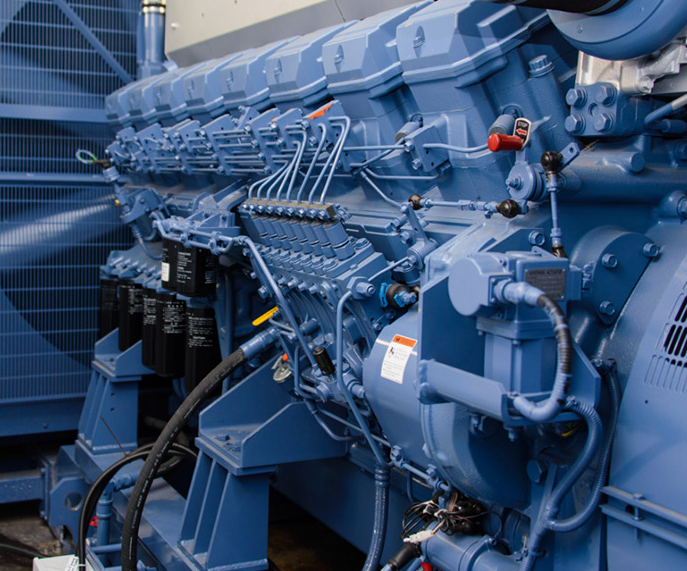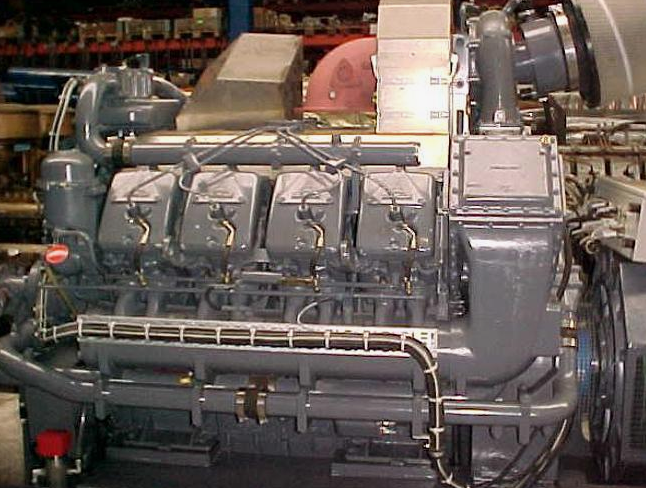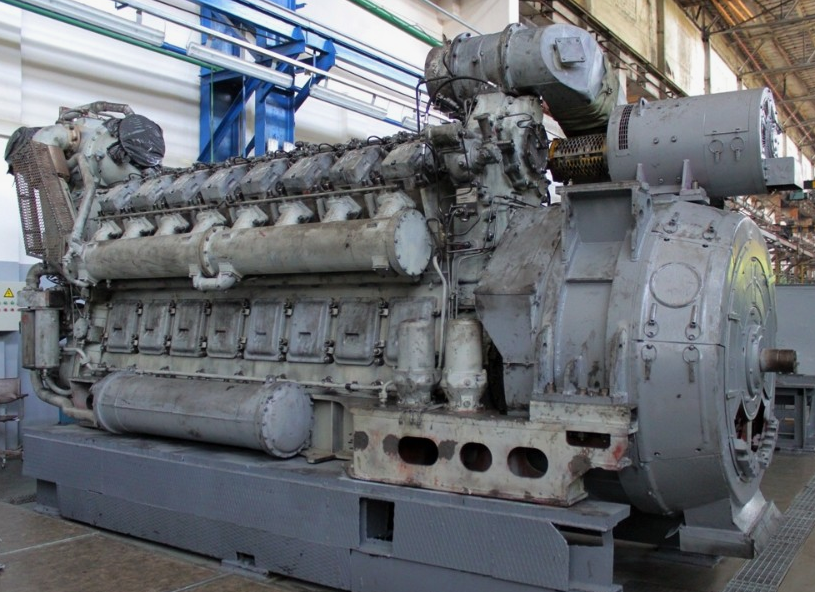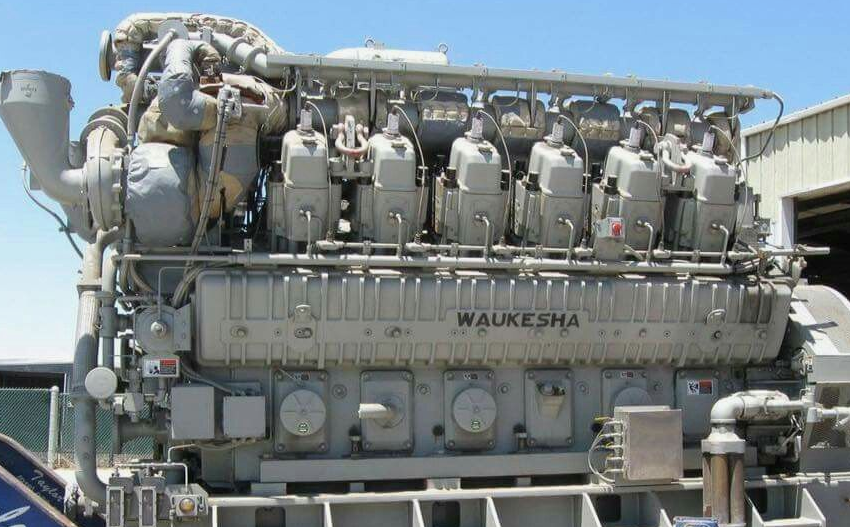A diesel engine generator produces electricity by burning diesel fuel, combining an engine and a generator. Diesel generators are essential machines powered by diesel engines to generate electricity efficiently. These generators utilize the chemical energy in diesel fuel through combustion to create mechanical energy. With their versatility and reliability, diesel generators are commonly used for residential, commercial, and industrial purposes, offering a dependable power source in various applications. Whether for backup power during outages or continuous power supply in remote locations, diesel generators are a popular choice due to their durability and cost-effectiveness.
The ability to run on diesel fuel makes them suitable for a wide range of settings, making them a valuable asset in ensuring uninterrupted power supply.
Diesel Engine Generator

How Diesel Engine Generators Work
Diesel engine generators are a reliable source of electricity that converts the chemical energy in diesel fuel to mechanical energy through combustion. The generator is powered by a diesel engine, which is an internal combustion engine that runs on diesel fuel. It is commonly used in both commercial and residential settings as a backup power source.
Introduction- Diesel Engine Generator
Diesel engine generators are highly useful machines that generate electricity by burning diesel fuel. These generators combine an electric generator with a diesel engine to convert the chemical energy in diesel fuel into mechanical energy through combustion.
Engine of A Diesel Generator- Diesel Engine Generator
A diesel generator is powered by a diesel engine, which is an internal combustion engine that runs on diesel fuel. The engine converts the chemical energy of the diesel fuel into mechanical energy, which is then used to drive a generator (an alternator).
Size of A Diesel Generator For A House
When determining the size of a diesel generator needed to power a house, it is important to consider the electricity requirements of the house. The size of the generator should be based on the total power needed to run all the electrical appliances and systems in the house.
Benefits of Using Diesel Generators
- Diesel generators are highly reliable and can provide a continuous power supply.
- They are fuel-efficient and can operate for longer periods on a single tank of diesel fuel.
- Diesel fuel is readily available and can be easily stored for emergencies.
- Diesel generators have a longer lifespan compared to other types of generators.
- They are suitable for both residential and commercial use.
Maintenance of Diesel Generators
To ensure the proper functioning and longevity of a diesel generator, regular maintenance is crucial. Some important maintenance tasks include:
- Regularly checking and changing the oil and filters.
- Inspecting and cleaning the air intake system.
- Testing and replacing the spark plugs.
- Monitoring and maintaining the coolant levels.
- Inspecting and cleaning the fuel system.
Diesel engine generators are reliable and efficient machines that convert the chemical energy in diesel fuel into mechanical energy to generate electricity. They are widely used in both residential and commercial settings for their durability and fuel efficiency.
Advantages of Diesel Engine Generators
Diesel engine generators are widely used for various purposes due to their numerous advantages. Below are some key advantages of diesel engine generators:
Efficiency And Reliability
Diesel engine generators are known for their efficiency and reliability. They are highly efficient in converting fuel into electrical energy and are capable of providing a constant power supply for extended periods.
Low Maintenance
One of the significant benefits of diesel engine generators is their low maintenance requirements. They are designed to be rugged and durable, requiring minimal upkeep, which makes them a cost-effective power solution.
Cost-effectiveness
In terms of cost-effectiveness, diesel engine generators stand out as they offer a lower operating cost compared to other types of generators. The availability and affordability of diesel fuel make these generators a practical choice for many applications.
Long Lifespan
Diesel engine generators have a long lifespan and are built to withstand heavy usage. With proper care and regular servicing, these generators can operate efficiently for many years, making them a valuable investment for businesses and industries.
Wide Application
Due to their versatility, diesel engine generators find wide applications across various industries, including construction, healthcare, telecommunications, and manufacturing. They are capable of powering both essential and heavy-duty electrical loads.
Environmental Impact
Modern diesel engine generators are designed to be environmentally friendly, with advanced technologies that reduce emissions and ensure compliance with stringent environmental regulations. This makes them a sustainable choice for power generation.
Applications of Diesel Engine Generators
A diesel engine generator is a highly versatile machine that can be used in a variety of applications. These generators are commonly used in industries such as construction, mining, healthcare, and agriculture, as well as for backup power in residential and commercial settings. In this article, we’ll explore some of the most common applications of diesel engine generators.
Industrial Applications
Diesel engine generators are widely used in industries that require reliable and continuous power. These generators are commonly used in construction sites, mining operations, and oil and gas fields. They are also used in manufacturing plants to provide backup power in case of power outages. Diesel generators are preferred in industrial applications due to their high power output, fuel efficiency, and durability.
Healthcare Applications
Diesel engine generators are essential in healthcare facilities, including hospitals and clinics. These generators provide backup power during power outages, ensuring that critical medical equipment such as ventilators, monitors, and life support systems continue to function. Diesel generators are preferred in healthcare applications due to their reliability, low maintenance, and long lifespan.
Agricultural Applications
Diesel engine generators are widely used in agriculture to power irrigation systems, grain dryers, and other equipment. These generators are preferred in agricultural applications due to their ability to operate in remote locations, their fuel efficiency, and their ability to handle heavy loads.
Residential and Commercial Applications
Diesel engine generators are commonly used as backup power sources in residential and commercial settings. These generators provide power during blackouts, ensuring that essential appliances such as refrigerators, heaters, and lights continue to function. Diesel generators are preferred in these applications due to their low noise levels, fuel efficiency, and reliability.
Diesel engine generators are highly versatile machines that can be used in a variety of applications. These generators are preferred for their high power output, fuel efficiency, and reliability. Whether you need backup power for your home or business, or you require a reliable power source for your industrial or agricultural operations, a diesel engine generator is an excellent choice.

Factors To Consider When Choosing A Diesel Engine Generator
When considering a diesel engine generator, it’s essential to keep various factors in mind to ensure you select the most suitable option for your needs.
Power Requirements
Assess your power needs to determine the appropriate size of the generator required for your specific applications.
Fuel Efficiency
Consider the fuel efficiency of the diesel engine generator to minimize operating costs over time.
Reliability and Durability
Ensure the generator is reliable and durable enough to withstand continuous usage and harsh environmental conditions.
Brand Reputation
Research and choose a reputable brand with a proven track record of quality diesel engine generators.
Portability and Size
Consider the portability and size of the generator to ensure easy transportation and installation.
Maintenance and Care For Diesel Engine Generators
Diesel engine generators are essential machines that require proper maintenance to ensure their longevity and efficiency.
Importance of Regular Maintenance
Regular maintenance is crucial to prevent breakdowns and ensure optimal performance of diesel engine generators. It involves checking fluid levels, changing filters, inspecting belts and hoses, and testing batteries regularly.
Fluids And Filters
Regularly check and change the oil, coolant, and fuel filters to prevent contamination and maintain engine efficiency. Using high-quality fluids is essential for the longevity of the generator.
Battery Maintenance
Inspect the batteries periodically for corrosion and proper connection. Clean terminals regularly and test the battery voltage to ensure the reliable starting of the generator.
Operational Testing
Regularly test the generator under load conditions to ensure proper functioning. Check voltage output, frequency stability, and fuel consumption during these tests to detect any issues early.
Common Issues and Troubleshooting For Diesel Engine Generators
Diesel engine generators are essential for providing backup power in case of outages. Common issues faced with these generators include low fuel efficiency, overheating, and battery failure. Troubleshooting these issues requires regular maintenance and inspection of the generator’s components.
Can A Diesel Engine Be Used As A Generator?
Diesel generators are very useful machines that produce electricity by burning diesel fuel. These machines use a combination of an electric generator and a diesel engine to generate electricity. Diesel generators convert some of the chemical energy, contained by the diesel fuel, to mechanical energy through combustion.
What Is The Engine of A Diesel Generator?
Diesel generators are powered by a diesel engine, which is an internal combustion engine that runs on diesel fuel. The engine converts the chemical energy of the diesel fuel into mechanical energy, which is then used to drive a generator (an alternator).
What Size Diesel Generator To Run A House?
When determining the size of a diesel generator needed to run a house, several factors need to be considered, such as the size of the house, the number of appliances and electrical devices, and the power requirements of those devices. It’s recommended to consult with a professional to assess your specific needs and choose the appropriate size generator.
Can A Diesel Generator Run A House?
Yes, diesel generators can be used to power homes. They are commonly used in residential areas as backup power sources during power outages or in remote locations where access to the main power grid is limited. Diesel generators provide reliable and efficient power to keep essential appliances and systems running.
Future Trends In Diesel Engine Generator Technology
Diesel engine generators are a crucial source of power in various industries and settings. As technology continues to advance, the future trends in diesel engine generator technology are set to revolutionize power generation and distribution. This blog post explores some of the upcoming advancements and innovations in diesel engine generator technology.
Advancements In Fuel Efficiency
Future diesel engine generators are expected to incorporate advanced fuel efficiency technologies, such as electronic fuel injection systems and intelligent engine management. These advancements aim to optimize fuel consumption and reduce emissions, making diesel generators more environmentally friendly. Additionally, improvements in combustion processes and the use of alternative fuels will contribute to enhanced fuel efficiency in diesel engine generators.
Integration of Smart Monitoring Systems
In the future, diesel engine generators will be equipped with sophisticated smart monitoring systems that enable real-time performance tracking and diagnostics. These systems will utilize sensor technology and data analytics to provide insights into the operational status of the generator, allowing for proactive maintenance and preventing potential failures. Integration of remote monitoring capabilities will enable operators to oversee generator performance from anywhere, enhancing operational efficiency and reliability.
Adoption of Hybrid Power Solutions
Hybrid power solutions, combining diesel engine generators with renewable energy sources and energy storage systems, are anticipated to gain traction in the future. This approach will enable seamless integration of intermittent renewable energy into power generation, reducing dependency on traditional fuel-based generators. The adoption of hybrid power systems will contribute to sustainability and resilience in power generation, particularly in off-grid and remote locations.

Enhanced Digital Control and Automation
The future of diesel engine generator technology will witness advancements in digital control and automation. Integration of smart grid functionalities and advanced control algorithms will enable optimized load management and seamless grid synchronization. Moreover, the implementation of predictive maintenance algorithms and autonomous operation capabilities will further enhance the reliability and efficiency of diesel engine generators.
Conclusion
Diesel engine generators are reliable and efficient sources of power for both residential and commercial use. With their ability to convert chemical energy into mechanical energy, they provide a dependable solution during power outages and construction projects. Whether for home or industrial use, diesel generators offer a robust power supply option.

